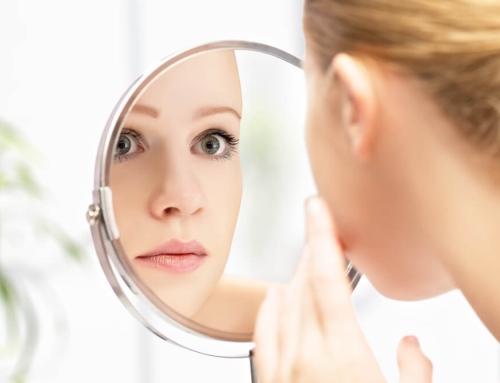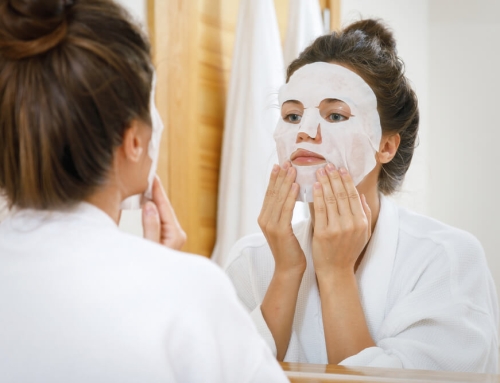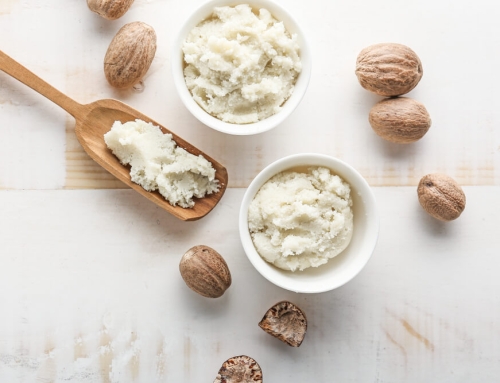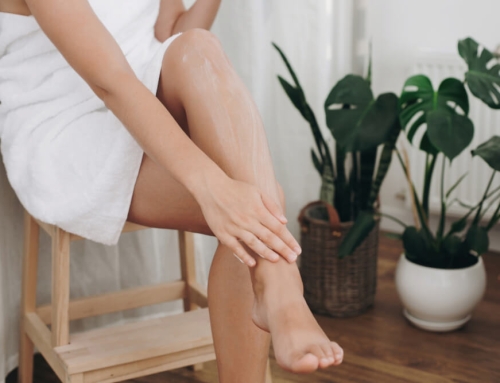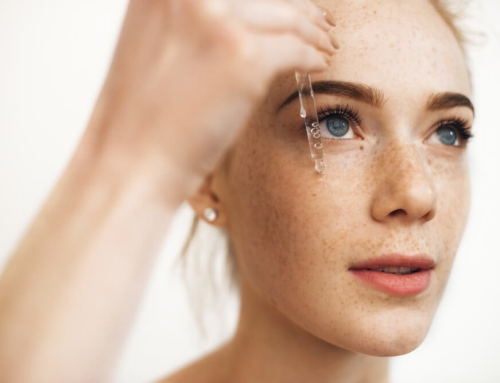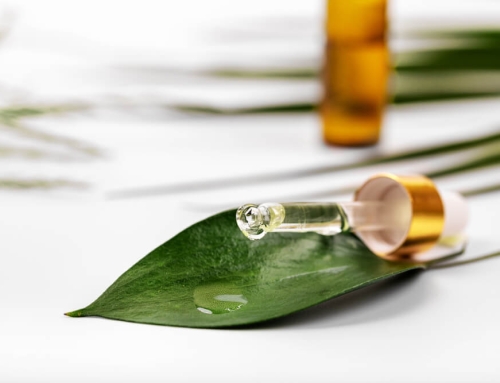With more and more people now seeking out naturally-derived skin care ingredients, botanicals have really made a name for themselves. While most ingredients out there, including those that come from plants, are only suited to certain skin types, these nine botanicals have amazing effects on all skin types, making them safe for everyone to use.
Aloe Vera
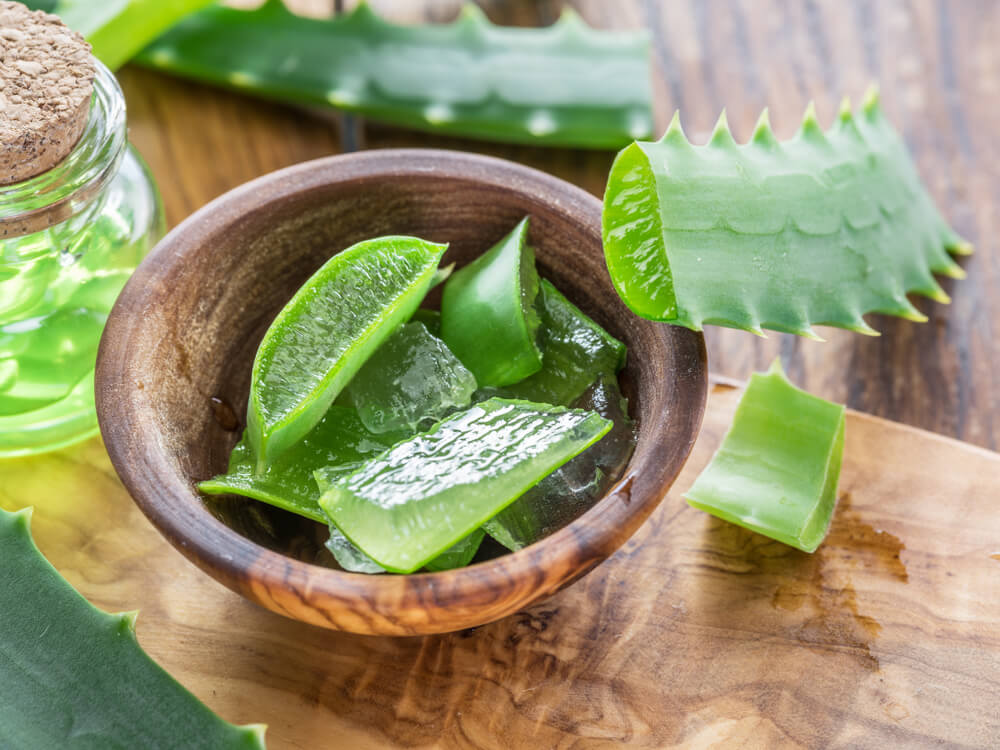
A plant that has been revered for its medicinal properties for thousands of years, aloe vera is one of the most popular botanical extracts out there.
Many people know this ingredient as one that can help with sunburns, or just about any other type of burn, and this all comes down to aloe vera’s anti-inflammatory properties. In addition to soothing burns, these anti-inflammatory qualities can also help to calm other skin conditions that are caused by inflammation, be it acne, psoriasis, rosacea or anything else.
Aloe vera is also packed with a number of vitamins, antioxidants and enzymes. In fact, there are around 75 potentially active compounds within this botanical, including:
- Vitamin A
- Vitamin C
- Vitamin E
- Copper
- Calcium
- Zinc
- Various fatty acids
- 20 amino acids
If that isn’t enough to impress you, aloe vera also works as a gentle exfoliant, making this botanical a great way to brighten up the appearance of your skin while boosting cellular turnover.
Jojoba
Derived from the jojoba bean, the jojoba in your skin care products is usually in the form of jojoba oil, which, on a molecular level, is actually closer to a wax than an oil.
You are probably thinking…
Surely jojoba oil isn’t good for all skin types, because what about people with oily skin? Why would they want to apply an oil to their face when they are already dealing with excess oil?
Well, jojoba oil is pretty special…
The molecular makeup of jojoba oil means that this is an oil that is extremely similar to the sebum that the skin produces itself. Your skin cannot actually tell the difference between jojoba oil and its own sebum. This means that when you apply jojoba oil onto oily skin, your skin then thinks that it has produced enough oil, leading to a decline in natural oil production. Over time, this leaves your skin much less oily than it was to begin with.
Since jojoba oil is also non-comedogenic, it will not clog up your pores or contribute to breakouts.
Wondering what jojoba oil actually does for the skin?
It has a number of fascinating effects, including:
- Acts as a humectant, helping to keep the skin moisturized
- Contains antibacterial properties to keep bacteria and infections at bay
- Contains a natural form of vitamin E, which is a powerful antioxidant
- Soothes the skin
- Helps to speed up wound healing
Calendula
Have you seen marigold flowers before?
Well, their official name is Calendula Officinalis, and this is where calendula oil and extract comes from. The flower itself is edible, but your skin will benefit so much more if you use this ingredient topically.
One of the greatest ways in which calendula can boost your skin is with its anti-inflammatory properties. Just like aloe vera, calendula is a botanical that is often used for soothing burns. Not only does it have calming effects, reducing inflammation in the skin, but it also helps to speed up wound healing.
Research has also found that calendula extract is effective at protecting the skin from oxidative stress that has been caused by the sun.
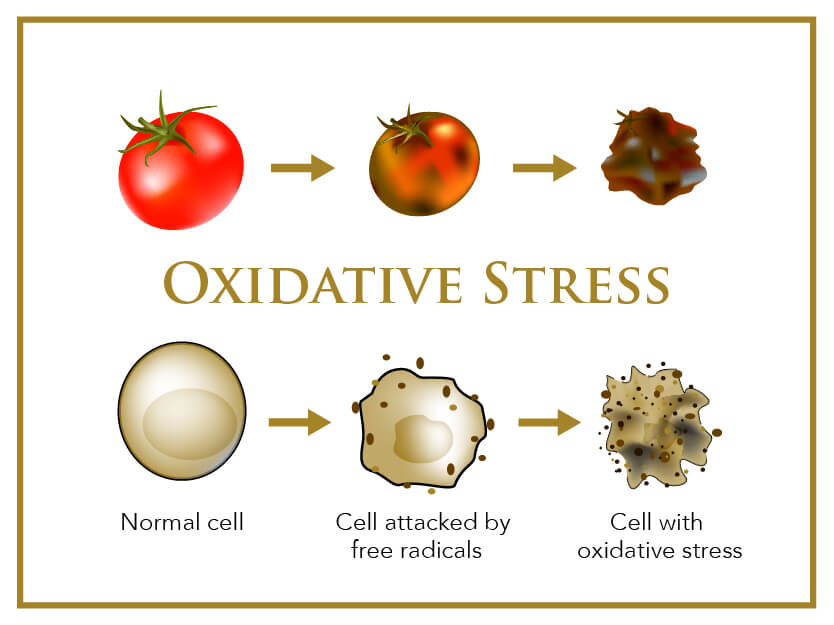
What does oxidative stress do?
It accelerates the skin aging process, breaking down the proteins that give the skin its firmness and elasticity. Not only does oxidative stress mean that you will experience fine lines, wrinkles and loose skin much earlier than you otherwise would have, but it will also have a detrimental effect on your skin tone and texture.
The way in which calendula is able to protect against this makes it a fantastic anti-aging ingredient for all skin types.
Want to give calendula extract a try?
The OROGOLD 24K Anti-Aging Eye Serum contains calendula extract as one of its top ingredients. It also features green tea extract – another botanical that has been mentioned on this list.
Green Tea
You probably already know about the many health benefits that green tea can provide when it is consumed, but have you ever considered applying this ingredient topically to your skin?
If not, now is the time to look into it, because this is a botanical that can benefit just about everyone.
How?
Well, for starters, it contains numerous polyphenols. These are micronutrients that are packed with antioxidants and other beneficial compounds. There is one polyphenol in particular, known as EGCG, that green tea is especially famous for.
What makes EGCG so great?
Research shows that it can transform the skin in a number of ways, such as:
- Improving skin hydration and moisture retention
- Preventing wrinkle formation
- Reducing the appearance of existing wrinkles and fine lines
- Neutralizes harmful free radicals in the skin
- Inhibits melanin production
- Prevents the skin from producing excess oil
As an added bonus, the green tea’s polyphenols are also able to help prevent the development of certain skin cancers, making this a botanical that everybody would benefit from.
Rose
Known for their incredible beauty and sweet scent, roses are one of the most popular flowers out there. They are packed with a wide range of nutrients, making them a powerful skin care ingredient too.
The first thing to know when it comes to using rose on your skin is that this botanical is available in a few different forms. The most common are:
- Rose water
- Rose oil
- Rosehip oil
- Rose extract
One thing that they all have in common is their vitamin and antioxidant content. Rose is packed with vitamins A and C, which, as you probably already know, work so well for all skin types. Both those vitamins, along with the antioxidants that roses contain, target the visible signs of aging, doing everything from reducing the appearance of fine lines and wrinkles to brightening dark spots. If you go for an oil, this helps with anti-aging even more, due to the concentration of fatty acids within the oil.
Just like many of the other ingredients on this list, rose has some powerful anti-inflammatory properties. It is a great botanical for soothing the skin and reducing inflammation, while treating inflammatory skin conditions.
Rose is also an astringent, meaning that it can help to cleanse the skin. However, unlike many of the other cleansers out there, rose does not interfere with the skin’s natural pH level. This is why rose water is so commonly used as a cleanser and toner.
One other unique property of this botanical that you need to know about is…
Rose is extremely hydrating. It helps to balance out the skin’s moisture levels, increasing its water content, which is something that all skin types can benefit from.
Sweet Almond
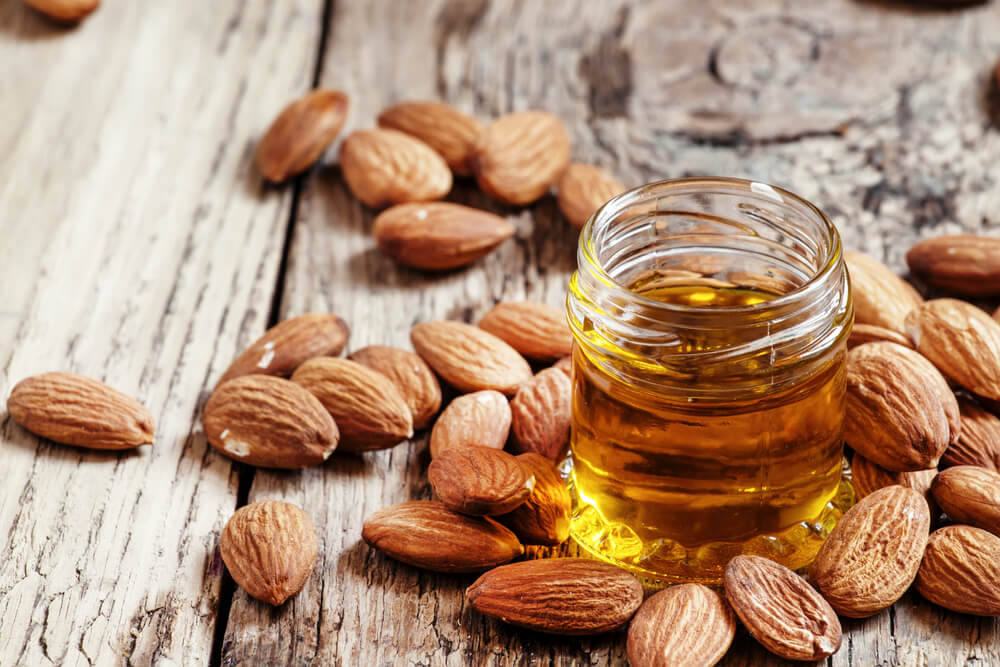
There are two main types of almonds out there; sweet and bitter. Sweet almonds are the nuts you eat, and are also the almonds that provide some interesting skin benefits.
When it comes to cosmetics, sweet almond is usually used in the form of an oil. Don’t worry, sweet almond oil is non-comedogenic, meaning that it will not clog up your pores.
Instead, it nourishes the skin with its high concentration of fatty acids, helping to fortify the skin’s natural barrier while moisturizing the skin at the same time.
In addition to containing plenty of fatty acids, you will also find vitamins A and E in sweet almond oil.
What do those vitamins do?
Well, vitamin A is one of the most potent anti-aging ingredients out there. It does everything from stimulating collagen production to speeding up cellular turnover, making this an ingredient that you would never say no to. Vitamin E works as a powerful antioxidant. It is able to prevent free radicals from damaging your skin, keeping your skin looking younger for longer.
One final tip…
In addition to benefiting your skin, sweet almond oil is a popular hair care ingredient too. It has similar effects on your hair as it does on your skin, including its moisturizing and protective benefits.
Chamomile
Ever sipped a cup of chamomile tea to help calm you down?
This sacred herb has been used for its medicinal properties for centuries, with one of its greatest advantages being the way in which it promotes relaxation while reducing stress.
Well, when you use this botanical topically, it has similar effects on your skin too…
In the same way that chamomile tea helps to calm your mind, topical chamomile is able to calm your skin. This is due to its anti-inflammatory properties, making this a botanical that can help to treat a wide range of skin conditions.
Not only is chamomile a great anti-inflammatory, but it boasts a number of other impressive properties too, such as:
- An antifungal
- An antiseptic
- An antibacterial
- An antioxidant
The first three properties on that list make chamomile a great choice for treating acne. Not only can it minimize the inflammation that would have led to a breakout, but it can also destroy the acne-causing bacteria on the surface of the skin. Its antioxidant properties make this an effective anti-aging ingredient too.
While chamomile works well on its own, you would be better off using this ingredient in combination with others.
Why?
Because chamomile is able to penetrate quite deeply into the skin. When combined with other ingredients, it helps to pull those ingredients further down too, making your overall skin care routine more effective.
Hemp Seed
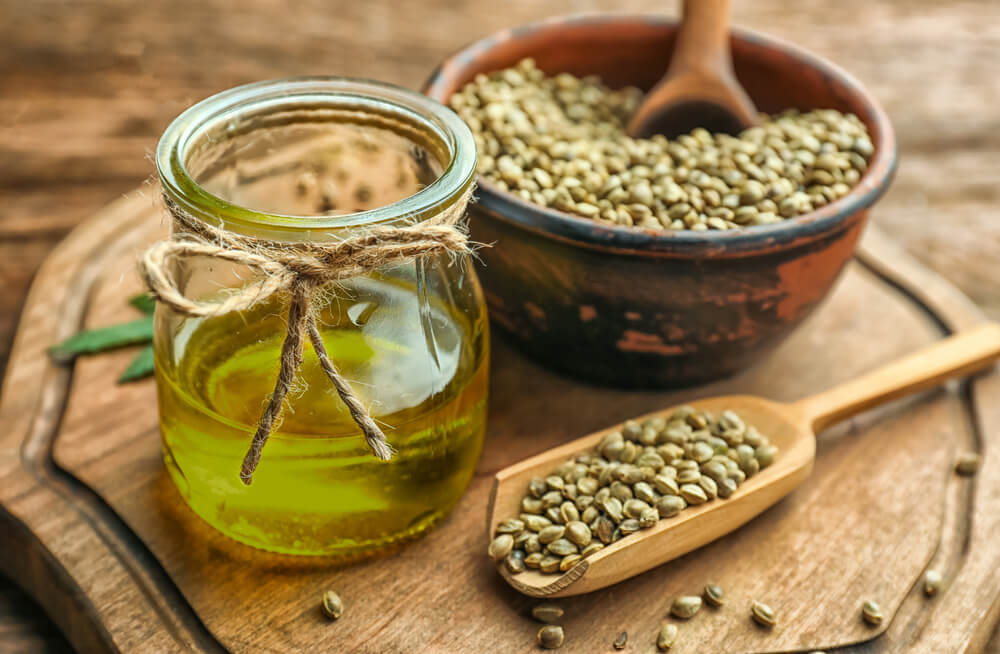
Hemp seed has been in the headlines quite a bit lately, and for good reason too. More and more people are discovering the many health benefits that hemp seeds can have, and these properties can lead to huge improvements in the skin too.
Hemp seed is usually used in the form of an oil, but, just like the oils mentioned above, this one is non-comedogenic too, meaning that you won’t need to worry about your pores becoming clogged. In fact, hemp seed oil can actually help to regulate the skin’s sebum production, cutting back on the amount of oil your skin produces in the long run.
Hemp seed oil is a great source of omega-6 fatty acids, or gamma-linolenic acid (GLA) to be precise. GLA has the following effects on the skin:
- Soothes inflammation
- Encourages skin tissue growth
- Encourages skin cell production
It also contains omega-3 fatty acids, making it effective at treating various skin conditions, such as eczema.
Cucumber
Ever placed cucumber slices on your eyes to try to reduce puffiness?
This is a popular beauty trick, because it usually works. Yes, some of those anti-puffiness effects you notice are down to the cool temperature of cucumber slices, which helps to constrict your blood vessels, but the nutrients within cucumbers play a role in this too.
The antioxidants and flavonoids within cucumbers, as well as their extract, have anti-inflammatory properties, reducing any swelling and irritation. Two of those antioxidants that are particularly worth taking note of are vitamin C and caffeic acid, both of which are also fantastic anti-aging ingredients. Not only do they protect against fine lines and wrinkles, but they can also help to brighten up the appearance of the skin.
Of course, with cucumbers consisting of 96% water, they are also incredibly hydrating. This botanical extract is able to provide your skin with a dose of moisture, helping to keep your skin cells looking plump and full.
There are so many different botanicals used in skin care products, making it a little confusing to know exactly what your skin needs. However, if you opt for one of the nine botanicals on this list, you won’t go wrong, as each one brings with it some incredible benefits for every skin type.


